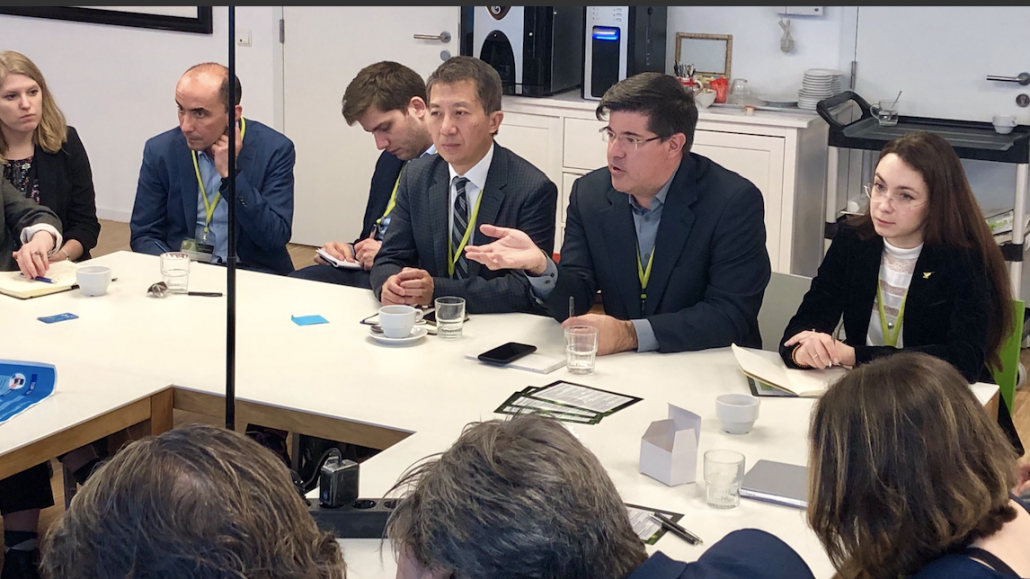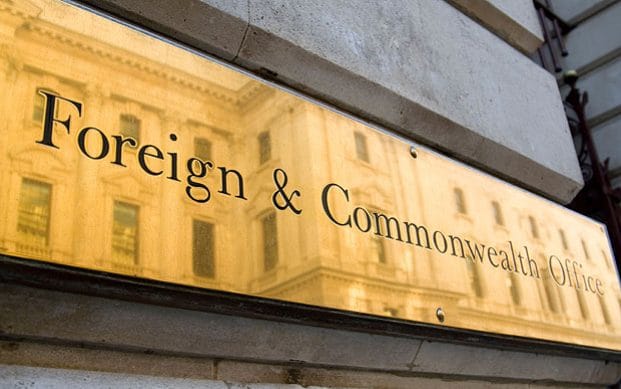Center for Public Diplomacy hosts PD Week in Brussels
The USC Center on Public Diplomacy and the Ministry of Foreign Affairs in the Netherlands wrapped up programming Thursday for Public Diplomacy Week in...
Kako je Angela Merkel dobila svoj emotikon?
Foto: Skrinsot / Jutjub
Sve popularne društvene mreže – Facebook, Twitter, Instagram kao i aplikacije za razmenu poruka – Messenger, Viber i Whats App imaju...
Revisiting Putnam’s two-level game theory in the digital age: Domestic digital diplomacy and the...
Note: This post was originally published on the blog of the Cambridge Review of International Affairs and was co-authored with Corneliu Bjola.
In 1988, Robert Putnam conceptualised diplomatic negotiations as a two-level game in which national and international politics often collide. In this framework, constituents and interest groups (labour unions, activist groups, etc.) pursue their interests at the national level by pressuring the government to adopt favourable policies. At the international level, governments attempt to meet the pressures and demands of their domestic constituents, while at the same time minimising the possible adverse impact of developments abroad. The interaction between the two levels manifests in the fact that a leader who ignores domestic pressures or who favours domestic politics above international issues will be unable to successfully ratify or negotiate a treaty at the other level. Thus, as Putnam argues, ‘the political complexities for the players in t..
There are diplomatic activities that require openmindedness more than anything else.
Via linkedin [Please note: format of original entry slightly changed here, including absence of original photos, due to computer technical reasons beyond your blogger's limited knowledge; please refer to original posting for complete text/illustrations.]
Katarzyna Rybka-Iwańska Head, Political and Economic Section, Embassy of Poland in Israel There are diplomatic activities that require openmindedness more than anything else. Yesterday, together with fellow diplomats from several EU countries, I took part in a special tour to the Naqab (Negev) during which we had a chance to visit a Bedouin unrecognized village and a recognized township where we discussed various ideas concerning Bedouin l women empowerment and engagement into local businesses, activism and politics. The Negev Coexistence Forum for Civil Equality and Adalah - The Legal Center for Arab Minority Rights in Israel, funded by the European Union, organized the tour.
The Rising influence of Chinese Social Media
iir.cz
image from article source: flickr.com
People Can Say ‘No’: The Rising influence of Chinese Social Media
It is worth noting that with the wider use of internet and social media, the social media and its users obtain stronger influence in China, both domestically and internationally. The Chinese social media users, especially the young generation who are born after the 1980s, are more in favor of expressing themselves and their ideas online publicly. Even though there are online speech regulation and strict limitations of accessing Western social media and internet, the Chinese social media users still demonstrate impressive power on many issues. Domestically speaking, the Chinese social media users have launched more thousands of anti-corruption campaigns online and deeply changed Chinese political environment, now even the Chinese government itself relies on information provided online to inspect bribed government officers. While from an international aspect, events like “March ..
Marapana instructs Lankan diplomats to boost image of Sri Lanka overseas
Foreign Minister Tilak Marapana addressing the gathering
Foreign Minister Tilak Marapana has called on Sri Lankan diplomats to boost the image of Sri Lanka overseas...
The Growing Importance of Journalists in Diplomacy
In 1986 a new press attaché was appointed to the Israeli Embassy in London. His first task was to establish close working relationships with the editors of Fleet Street, the home all major British newspapers at the time. One of the attaché’s most important meeting was with the journalist writing the editorials for the Times of London. Yet two hours before the fateful meeting the journalist called to cancel explaining “Swedish Prime Minister Olof Palme was just assassinated I need to learn all I can bout Swedish politics in the next five hours”. The attaché, who had just finished a four year posting in Stockholm, saw an opportunity. He told the journalist “let’s meet and I will tell all you need to know about Palme and Sweden. We can leave Israel for another time”. The next morning the Times’ editorial offered an in-depth analysis of Palme’s influence of Swedish foreign policy and the likely effect of his assassination on the country. The attaché, on his part, received another call from..
Foreign Office to publish training course online for first time so public can learn...
For centuries, the skills of British diplomats have been the envy of the world, with discussions about their strategies and tactics taking place behind...
Kako izgledaju profili srpskih političara na Instragramu?
Instragram je poslednjih godina društvena mreža sa najvećim rastom.
Ujedno instagram je “najmlađa” društvena mreža, ne toliko po godinama postojanja već publici koja je konzumira...
John Casson: Digital Diplomacy in Egypt
"Twitter allows us to reach the parts that normal diplomacy doesn't" @JohnCassonUK, the UK's former Ambassador to Egypt, pioneered a new kind of digital...



















